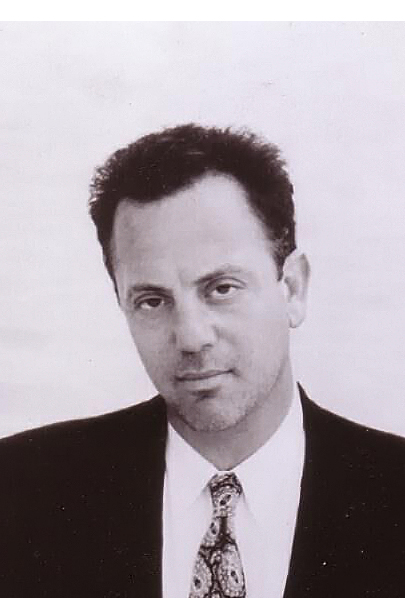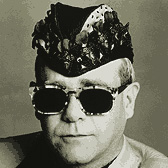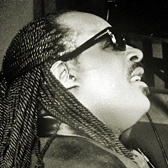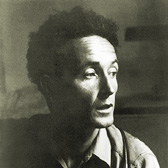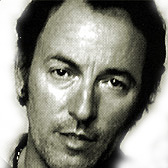
"The Boss" honored with 20 Grammys
Bruce Springsteen
InducteeThrills audiences with spectacular performances, poetic songs of the common man
A former Boston newsman and the current New York Times Arts and Leisure Section editor have at least one thing in common. Back in the early '70s, both had the good fortune to catch one of America's embryonic national music treasures, Bruce Springsteen, in action. Boston-based Jon Landau (now Springsteen's manager) caught the artist at the then popular Harvard Square Theater, and enthused, "I saw rock and roll future and its name is Bruce Springsteen." John Rockwell, then a reporter/critic for The Times' music department, covered the singer at New York's legendary east village nightspot, The Bottom Line, and predicted for the singer virtually all things but the US Presidency. Knowledgeable music observers have pinpointed this engagement as the unofficial launching pad for Springsteen’s path to superstardom.
Springsteen was born in September 1949 to a working class family in Freehold, New Jersey. Like many of his contemporaries, he fell in love with rock and roll, as personified by Elvis Presley's appearances on the Ed Sullivan Show. At 16, inspired by the vision of rock stars like Presley, he joined his first band, The Castiles, following a brief residency at Ocean Community College, where he had several poems published in the school's literary magazine. In the then colorful seaside town of Asbury Park, Springsteen began playing with a number of groups, culminating with his own Bruce Springsteen Band, containing many of the players who would one day become the famed E-Street Band.
In 1973, Springsteen was signed to Columbia Records and almost immediately released his first album Greetings from Asbury Park. Initial sales and airplay of Greetings from Asbury Street were slight at the time, but many critics were intrigued by the unique lyric wordplay of the songs, particularly “Blinded by the Light”, “Does This Bus Stop at 82nd Street”, “For You”, “Spirit in the Night” and “It’s Hard to be a Saint in the City”.
Springsteen’s follow-up album The Wild, the Innocent, and the E-Street Shuffle was released later in 1973 to more acclaim and even less commercial response. Hightlights from the album include “Incident on 57th Street” and the epic lover’s plea “Rosalita (Come Out Tonight)”.
After Landau's review of the Harvard Square Theater date, the two became friends, with Landau co-producing the third album, Born to Run, released in 1975. The album set the tone for the history to come, Springsteen style, creating the critical groundswell that resulted in simultaneous cover stories in Time and Newsweek magazines. The rich, urban lyrics packed more power than ever in such meticulously crafted songs as "Thunder Road," "Backstreets" and "Jungleland."
Following the resolution of legal problems with his former manager that sidelined him for two years, Springsteen reappeared in record stores with Darkness on the Edge of Town, an album that included more soon-to-be historic tracks like "Racing in the Street," "The Promised Land" and the searing emotion of the title song. During the concert tour that followed, the E-Street Band became one of the most overwhelming ensembles in rock and roll, retaining that edge for years to come. On the performance side, Springsteen was having a major impact. In August 1978, he performed his first three shows at Madison Square Garden, all sellouts, and a month later, three more shows at the already legendary Capitol Theater in Passaic, NJ, with the opening night broadcast live on WNEW-FM, then the kingpin of rock radio in greater New York.
Late in 1980, the album that was to push Springsteen into the super sales category, The River was released. With memorable songs like "Hungry Heart," one of Springsteen's true anthems; "Independence Day" and "Stolen Car," the album became his first number one chart entry. In July of 1981, less than a year after the release of The River, Springsteen performed the first six shows at the brand new Byrne Meadowlands Arena in East Rutherford in his native New Jersey. All shows sold out virtually immediately. Nebraska an acoustic album that explored as one critic put it, "the lives of those left behind by the American Dream," came along a year later. While this solo acoustic CD actually reached number three on the charts, his next, 1984’s Born in the USA, quickly achieved multi-platinum status, spawning 10 top 10 singles in the process, among them, "Dancing in the Dark," “Born in the USA” and “Glory Days”. The album led to an amazing sold-out global stadium tour, stamping the artist in the process as surely the world's greatest rock attraction.
In succession came more albums, including the three-CD collection Bruce Springsteen and the E-Street Band: Live 1975-1985, which entered the charts at number 1. The next album, Tunnel of Love, preceded the break-up of the artist's first marriage. Later, Springsteen married his former back-up singer, Patti Scialfa, with whom he has three children.
During the '80s, Springsteen the singer/songwriter/ recording star, also became one of the world's most successful concert artists, at one point in mid-summer 1985 selling out six shows at the 70,000 plus capacity Giant Stadium in New Jersey. During the same year, his Tunnel of Love garnered his first Grammy for Best Rock Vocal Performance, Male.
In 1992, following several years of self-imposed exile from the recording spotlight, Springsteen released a pair of albums, Human Touch and Lucky Town both without the hard-driving back-up of the E-Street Band. The albums entered the charts at number 2 and 3 respectively. The tour that followed played to virtually all sold-out houses, including 11 sold-out shows at the Meadowlands Arena with a total attendance of 220,902.
A year later, Springsteen achieved another career high point with his haunting song, "Streets of Philadelphia," the theme to the film, Philadelphia. The song won an Oscar and four Grammy’s during that eventful year. Springsteen also wrote and performed the title song for the motion picture Dead Man Walking, which won a Grammy nomination for Best Rock Vocal Performance, Male, and an Oscar nomination for Best Song Written for a Motion Picture.
In 1995, the artist released his Greatest Hits, album, which included three new songs with the E-Street Band. Later the same year, he recorded The Ghost of Tom Joad, a heartbreaking collection of songs about society's have-nots, which went on to win a Grammy for Best Contemporary Folk Album. In the fall of 1998, Springsteen released Tracks, a four-CD collection featuring previously unreleased songs spanning his 25 years of recording.
The latest Springsteen release, The Rising, a collection of songs composed in the wake of the September 11th attacks on America, was the first collaboration with the E Street Band since 1984’s Born in the USA. The Album was the winner of the 2003 Grammy Award for Best Rock Album and the track “The Rising” won the 2003 Grammy Award for Best Rock Song and Best M ale Rock Vocal Performance.


